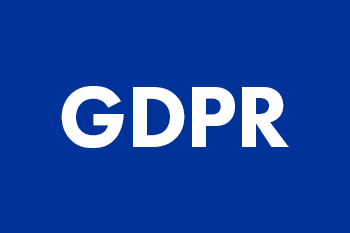Emily Taylor, account manager for DevComms Oxford, considers the way the Sunak Government will redirect the country and how it will reassess the measures introduced under Liz Truss.
The appointment of new Conservative leader, Rishi Sunak, as Prime Minister this October has already loaned itself to a series of U-turns and stark changes to Liz Truss’ flagship planning and infrastructure policies.
Sunak’s plans to scale back on infrastructure projects and perhaps scrap the seemingly expensive Investment Zones form a few of the changes likely to come forward as part of his new Growth Plan.
These changes are set to be outlined by the Chancellor in the Autumn statement on November 17. But what changes to infrastructure policies will come forward?
A U-turn on investment zones?
Investment zones, a flagship idea for Liz Truss’ plan for growth, are one of the initiatives set to be scrapped under the new Prime Minister. This follows criticism that the zones are ‘very expensive and seemingly deliver very few benefits’, and that they would abandon safeguards for wildlife.
Michael Gove, Secretary of State, last weekend explained that he was reviewing the zones and that ‘anything that might undermine environmental protections is out’.
Investment zones were a key part of Liz Truss’ plans to help to level up the country by spurring investment in regions outside of London. The zones would allow firms to benefit from low taxes and a light touch regulatory regime, including on planning rules.
Investment zones and other similar ideas have been brought forward by the Conservative party historically, and do present an interesting opportunity for growth. Unfortunately, in this instance it is likely that the Truss implementation will lead to the tarnishing of the idea in general.
It is of note that the investment zone initiative was similar to the Freeports policy which Rishi Sunak introduced during his time as Chancellor, with Sunak previously criticising Truss for ‘copying and pasting’ his 2016 paper The Free Ports Opportunity.
It is therefore entirely possible that a rebrand of the policy, rather than a whole scrapping, could be implemented in the upcoming statement, highlighting the merit in the idea.
What does this mean for levelling up?
In his previous race for leadership, Sunak coined himself as the ‘fiscally cautious’ Prime Minister, which could indicate a reduction in various infrastructure funds, including levelling up funds, across the region.
However, the reappointment of Michael Gove as Levelling Up Secretary, and his statement that ‘it is more important than ever that we level up’ and that ‘we have made progress, but it’s not enough’, highlight an importance still placed on the agenda, which was a flagship pledge as part of the 2019 Conservative manifesto.
Rishi Sunak reaffirmed this point in his first speech as Prime Minister, where he confirmed that at the heart of his party’s mandate is the 2019 manifesto, stating: “I will deliver on its promises. A stronger NHS, better schools, safer streets, control of our borders, protecting our environment, supporting our armed forces, levelling up and building an economy that embraces the opportunities of Brexit, where businesses invest, innovate and create jobs.”
This again highlights a stark change from the Truss leadership, in which levelling up was notably missing from the Growth Plan, despite claims from Tory MPs that the new Government has ‘a commitment to absolutely press ahead’ with the manifesto promise.
Conclusion
Clearly the current political uncertainty has not helped to progress infrastructure and growth planning and the tarnished nature of the Truss leadership has meant that some interesting policies may not come forward as planned.
The rowing back on investment zones would be a clear example of poor implementation leading to doubt on potentially robust ideas, highlighted by the similarity of the idea to Sunak’s own previous plans.
It is also likely that Sunak will once again prioritise the levelling up agenda, which further indicates a stark change from the Truss leadership.
Sunak’s first challenge as he moves through his new role will be to stabilise Government and bring forward a set of policies which conform with the party’s 2019 manifesto and provide a level of certainty on plans for growth.
Investment zones and levelling up will surely be at the forefront of discussions and the Autumn Statement on November 17, but how they eventually come forward remains to be seen.
© Thames Tap (powered by ukpropertyforums.com).
Sign up to receive your free weekly Thames Tap journal here.

















